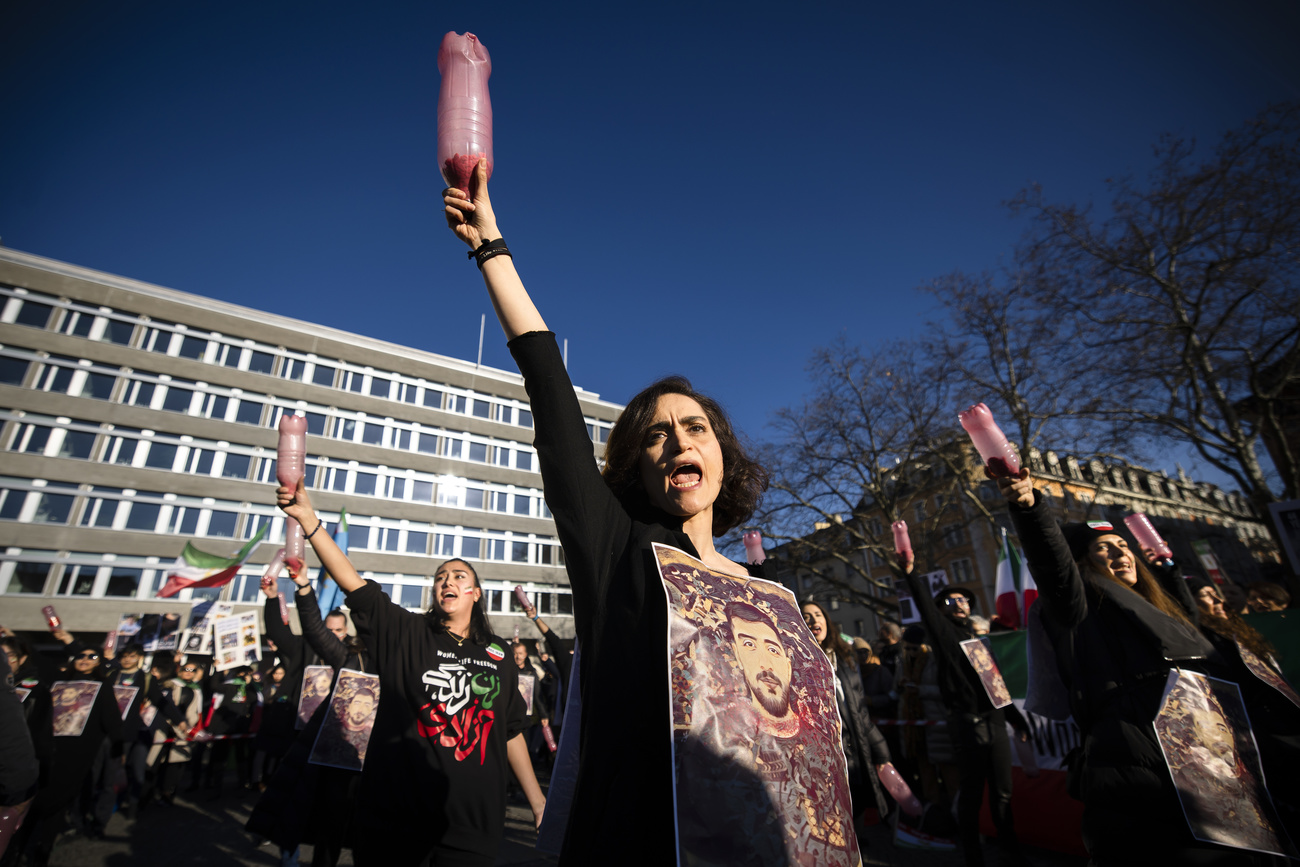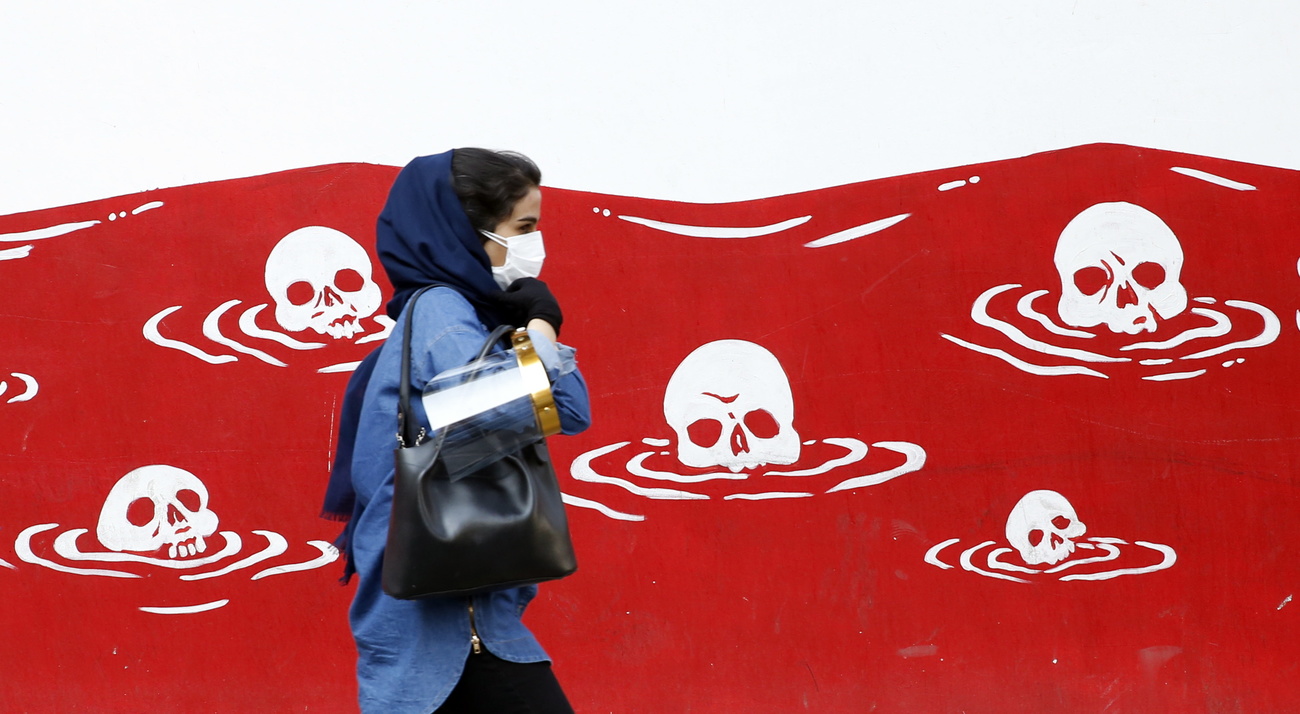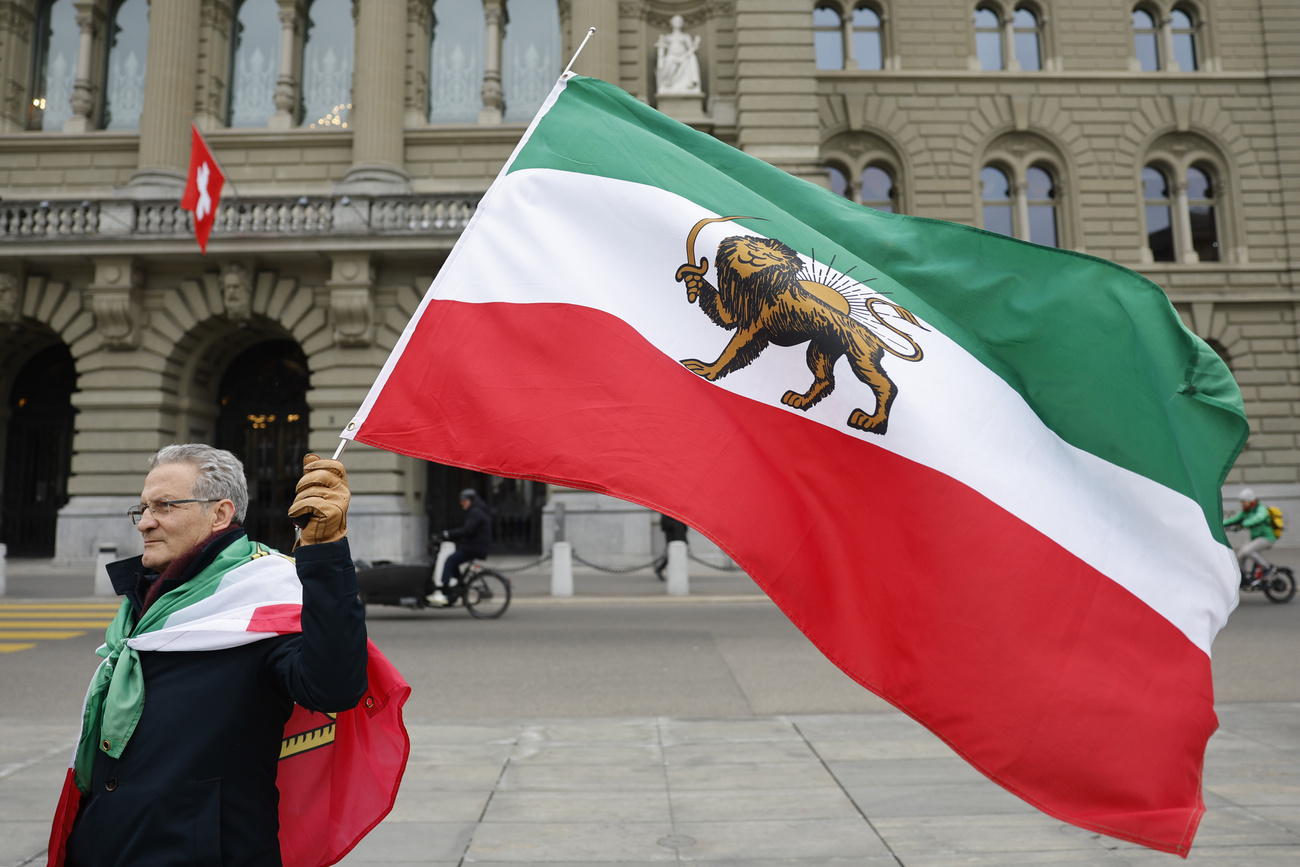
Swiss government under pressure to toughen stance on Iran

The Swiss parliament has adopted a declaration condemning Iran’s regime for its crackdown on opponents. Centre-left groups hope to increase pressure on the Swiss government to adopt European Union sanctions.
Swiss Foreign Minster Ignazio Cassis has repeatedly defended the Swiss government’s policy towards Iran. Meanwhile, Iranians living in Switzerland have continued public protests following the death in police custody of a young Kurdish woman last September.
The parliamentary declaration calls, in general terms, for an end to the repression of protestors in Iran, the release of all political detainees, the abolition of the death penalty and holding of democratic elections.
It also urges the Swiss government to take over all European Union sanctions, notably a freeze of Iranian assets, travel restrictions and a trade embargo, as well as support for an independent international probe into human rights violations.
Neutral Switzerland has already adopted earlier United Nations and EU sanctions against Iran imposed over the country’s nuclear activities and human rights violations. It has also imposed sanctions to target the suppliers and manufacturers of Iranian drones to Russia.
Earlier this week a centre-left majority of the House of Representatives supported the non-binding parliamentary declaration, while the main political parties on the right voted against it.
Human rights
Fabian Molina of the left-wing Social Democratic Party says he hopes parliament’s declaration will help put additional pressure on the Swiss government to toughen its Iran policy.
“I hope the government has got the message and will take action,” he said. The House of Representatives is due to discuss a proposal next week, demanding Switzerland takes over sanctions and supports Iranian civil society fighting for human rights, in particular women’s rights.
However, Molina is disappointed with the Radical-Liberal Party. He says the main centre-right party shirks its responsibilities when it comes to fundamental principles of Swiss foreign policy.
Marianne Binder of the Centre Party says the declaration, which the foreign affairs committee of the House of Representatives drafted, sends a clear signal on women’s rights.
She criticises the Swiss government for pandering to the Tehran regime and failing to defend human rights firmly.
“It seems the government has to feel the pressure by parliament before it gets its act together – as could be seen in the case of the Russian invasion of Ukraine,” she said.

Neutrality
A strong minority of the House of Representatives voted against the declaration, arguing it is counterproductive or even damaging for Switzerland’s reputation.
Yves Nidegger of the right-wing Swiss People Party told the lower chamber of parliament that the statement is useless and simply an act of self-gratification.
“The Iranian regime hasn’t changed its position a bit even after 44 years of extremely tough sanctions by the United States,” he said. “We are better off keeping a cool head.”
In a similar vein, Hans-Peter Portmann of the Radical-Liberal Party is concerned that the declaration could scupper efforts behind the scenes.
“It discredits the Swiss government and could even be seen as an open provocation of Iran,” he says.
Supporters and opponents in parliament disagree about whether the declaration undermines Switzerland’s neutrality and its role as a potential mediator in conflicts.
Diplomacy
Foreign Minister Ignazio Cassis has defended Swiss policy towards IranExternal link and a recent visit by the Swiss ambassador to Tehran to a holy Shiite shrine. Online criticism was directed at Nadine Olivieri Lozano after pictures emerged of her visit to the pilgrimage city of Qom dressed in a “chador”, a full-body-length piece of Islamic clothing.
+ The controversial visit by the Swiss ambassador to Qom
Speaking on the side-lines of a meeting of the UN Human Rights Council in the Swiss city of Geneva, Cassis said the visit by the Swiss ambassador was part of her diplomatic activity.
But he admitted that there was a certain risk that the incident could be instrumentalized by Iran’s regime.
The minister stressed that Switzerland had repeatedly taken a clear stand on the use of violence against demonstrators.
+ Switzerland condemns violence by Iranian security forces
He also pointed out the importance of maintaining dialogue with Iran’s regime and using Switzerland’s good offices policy to promote exchanges, including acting as go-between Washington and Tehran.
He said Switzerland was hoping the current situation in Iran might take a different course.
As for Switzerland’s role in Iran, Cassis admitted that it was not always easy. “But someone has to pass the messages [between the two sides],” he told journalists.
Protests
A vocal community of Iranian government opponents, supported by left-wing politicians and NGOs, has regularly staged protests in Swiss cities since the death in Iranian police custody of a young Kurdish woman, Mahsa Amini, last September. Police had arrested her for flouting the rules governing Islamic attire in the country.
On Monday, a group of protesters gathered outside the Swiss parliament in Bern and a crowd in Geneva voiced its opposition against a visit to Geneva by the Iranian foreign minister, Hossein Amir-Abdollahian.
On the same day, Amnesty International criticised Switzerland’s asylum policy and called for a more consistent approach.
It is unacceptable that the Swiss authorities continue to deport people to a country where there are flagrant human rights violations, said Amnesty.
+ Iranian protests test Switzerland’s special status with Iran


In compliance with the JTI standards
More: SWI swissinfo.ch certified by the Journalism Trust Initiative






























You can find an overview of ongoing debates with our journalists here . Please join us!
If you want to start a conversation about a topic raised in this article or want to report factual errors, email us at english@swissinfo.ch.